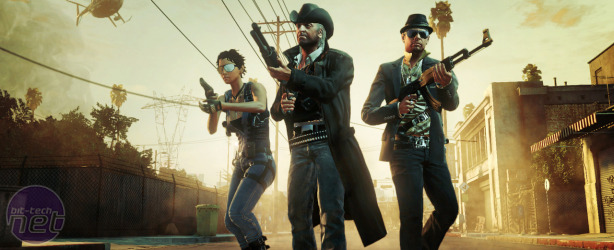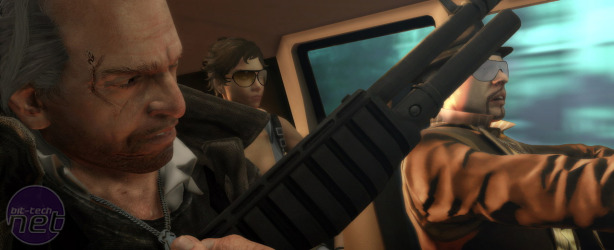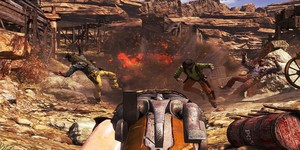Call of Juarez: The Cartel Preview
Platform: PC, Xbox 360, PlayStation 3Publisher: Ubisoft
Release Date: Summer 2011
Techland is trying to do something different, but familiar with Call of Juarez: The Cartel – and that’s a move which seems so ill-judged that it’s hard to know what to make of it. Previous Call of Juarez games puttered pleasantly along the periphery of mainstream success and now, soon after Red Dead has made the Wild West cool again, Techland has decided to eschew the western setting in favour of a humdrum modern tale.
That’s not the way Techland tells it, of course, but that’s certainly how it comes across. In fact, to hear the developer describe the game, The Cartel is more of a western than any other entrant in the series. At the start of the preview event, a member of the design team goes through a bullet-pointed list that Techland reckons defines the genre.
A suitable choice of location, a feeling of lawlessness, a degree of freedom, a cast of ‘real men’ and a mature, dark tone – this is how Techland defines the Wild West. It’s a definition so loose it could be twisted to fit everything from GTA IV to Dragon Age 2. So, while Techland draws up the specifics and inspirations it has painted-by-numbers on to this template, it’s impossible not to see the truth – that The Cartel is just another shooter.
It still manages to feel like a western at times, to be fair. The horses have turned into cars and the pistols swapped for AK-47s, but there’s still something timeless in the lighting and viciousness of the language, occasionally. Most of the action we saw took place in urban ghettoes, but there were glimpses of Nevada mesa too. It’s just a shame that the western tone is so overshadowed by Generic Shooter Syndrome that it’s almost entirely missable.
The location is LA and much of the game's freedom comes from your ability to choose to play as one of three characters – each a cop pulled into an above-the-law anti-drug taskforce. These cops are the ‘real men’ Techland previously mentioned, including Kim, an ambitious female FBI agent who isn’t at all designed as a Halle Berry look-a-like. The most law-abiding of the trio, Kim doesn’t exactly fit the template – but the skin-tight jeans and ridiculously figure-hugging bodice of holsters makes it clear that she’s around for different reasons. She’s a cliché in a combat vest.
To be fair, the other characters are equally lacking in subtlety. Eddie, with his outlandish shirts and copious bling, represents the DEA and is the smooth-talker of the group. The final member, Ben, is a Bible-quoting killer (a trite hallmark of the series) from the LAPD who is supposed to be jaded and vengeful, but mostly just walks around swearing needlessly. In short; none of the group has enough depth to drown an earthworm.
The final pole in the wigwam definition proposed by Techland – the dark tone – is one that appears to have been seeded continuously and crudely throughout the entire game. Techland has injected adult content at every possible juncture, with characters constantly swearing as they shoot, missions taking place in strip clubs and clumsy first-person fist-fighting all jostling for undeserved attention. The camera lingers over every inch of exposed flesh, following the usual misdirection that this is what gamers want.

MSI MPG Velox 100R Chassis Review
October 14 2021 | 15:04












Want to comment? Please log in.